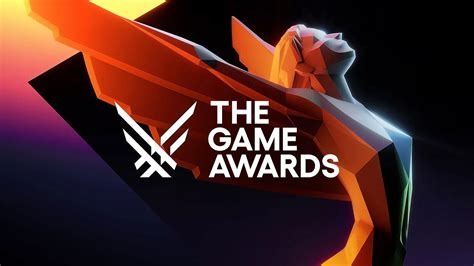
💬 Welcome to the blog!
What the “Game of the Year” Award Means for Localization Trends in 2025
What the “Game of the Year” Award Means for Localization Trends in 2025 (by Marina Ilari) explores how the games nominated for the prestigious Game of the Year 2024 have approached localization to reach a global audience. The article highlights the varied linguistic strategies of the six finalist games - including Astro Bot, the overall winner - and highlights the emergence of hyper-localization and the growing importance of crediting translators. He also looks back at the #TranslatorsInTheCredits movement, pointing out that all the nominated games except Astro Bot mentioned their translators. A clear and inspiring overview of the major localization trends in the videogame industry in 2025.
Marina Ilari
3 min read


December of last year marked the 10th anniversary of The Game Awards, the leading awards competition for the gaming industry. Featuring 29 diverse categories, the most anticipated and discussed is undoubtedly the “GOTY” — Game of the Year. The games nominated for that honor for 2024 included Astro Bot, Balatro, Black Myth: Wukong, Elden Ring: Shadow of the Erdtree, Final Fantasy VII Rebirth, and Metaphor: ReFantazio, with Astro Bot winning in that category.
From a localization perspective, it’s insightful to examine the globalization strategies of last year’s GOTY nominees and what it might mean to the games released this year. Additionally, the crediting practices of the 2024 GOTY nominees could signal a turning tide for the growing translator crediting movement.
Localization Approaches
Each nominated title implemented unique localization approaches to cater to diverse global audiences.
Astro Bot
The winner of 2024’s Game of the Year was developed by Team Asobi. Astro Bot offers text localization into an impressive total of 29 languages, including emerging gaming markets like Thai and Vietnamese. It also offers hyper-localization for language variants, catering to specific markets such as Portugal and Canada.
Balatro
Balatro, by LocalThunk, provides text localization in Chinese (Simplified and Traditional), Dutch, French, German, Italian, Japanese, Polish, Portuguese (Brazil), Spanish (Latin America), and Spanish (Spain). By offering localization targeting both major and regional language markets, the game is positioned to cater to global audiences, including both Western and Eastern markets.
Black Myth: Wukong
Game Science’s Black Myth: Wukong was developed in Chinese and then localized for international markets. The game includes voiceovers in Chinese and English, with subtitles available in Chinese (Simplified and Traditional), English, French, German, Italian, Japanese, Korean, Polish, Portuguese (Brazil), Russian, and Spanish (Spain) — reflecting its global outreach.
Elden Ring: Shadow of the Erdtree
FromSoftware’s expansion, Shadow of the Erdtree, continues the base game’s extensive localization efforts. It supports voiceovers in English with subtitles and interface translations in 13 languages, including Chinese (Simplified and Traditional), French, German, Italian, Japanese, Korean, Polish, Portuguese (Brazil), Russian, Spanish (Latin America and Spain), and Thai — catering to a broad player base and including some emerging markets.
Final Fantasy VII Rebirth
Square Enix’s Final Fantasy VII Rebirth offers a comprehensive localization strategy, featuring voice acting in English, Japanese, French, and German. Subtitles and menu translations extend to Italian, Spanish (Latin America and Spain), and Portuguese (Brazil).
Metaphor: ReFantazio
Developed by Studio Zero, Metaphor: ReFantazio includes voiceovers in Japanese and English, with subtitles available in Chinese (Simplified and Traditional), French, German, Italian, Japanese, Korean, Portuguese (Brazil), Russian, and Spanish (Spain).
Translator Crediting
The Game Awards provide visibility to the work of industry professionals, including translators. That’s why it’s important to localization professionals that their contributions be recognized by the GOTY nominees.
For context, in recent years, there has been a significant movement urging gaming companies and language service providers (LSPs) to include translators in the game credits. This #TranslatorsInTheCredits initiative aims to shed light on the fact that many companies still fail to credit their translators, despite the fact that translator crediting is widespread in other parts of the entertainment industry such as movies and TV. Many localization professionals are leading the charge to make translator recognition an industry standard. Organizations such as the Localization SIG of the International Game Developers Association and the Audiovisual Translation Division of the American Translators Association (ATA) are at the forefront of this effort.
Since the inception of the #TranslatorsInTheCredits movement, the trend has been positive, with more publishers and developers now including translators in their credits. For the GOTY awards, translators have been vocal in highlighting which games have recognized their contributions. Notably, all 2024 nominees credited their translators except for Astro Bot, where the unsung translator heroes remain uncredited.
Conclusion
It will be fascinating to see how last year’s trends in localization evolve in 2025 in response to the ever-expanding global gaming audience. With emerging markets continuing to gain prominence, the push for hyper-localization, and increased translator recognition, the industry is poised for exciting developments. One thing is certain: the role of localization in delivering immersive, culturally resonant experiences will remain central to the gaming industry.
